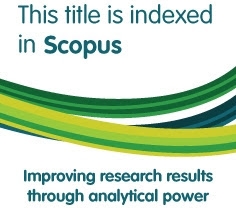Ṣuwar al-ḥaḍānah ba‘da al-ṭalāq fī Aceh al-Wusṭá
Abstract
The divorce rate occurred in post-tsunami Aceh have increased sharply, especially in Central Aceh district by 2015. This research was conducted in order to figure out the causes of divorce, the patterns of ḥaḍānah (child custody) and the parent’s attention towards their children after the divorce. The selection of Central Aceh as the object of research was because this district has been occupying the highest position of divorce rate when compared to other districts/cities. The results of this study explain that divorce occurs due to love affairs, economic problems, third-party intervention, early marriage, lack of communication, having no trust and different views of life principles. Meanwhile the pattern of ḥaḍānah happened was mostly carried out by their mother, and the rest was taken care of by their father and the third party like their grandparents. The relationship between the cause of divorce and ḥaḍānah is that when divorce is caused by a spouse’s bickering usually has a negative effect on the pattern of ḥaḍānah, if the divorce happened due to disagreement in the life principles or a certain principle it would have a positive impact. This negative impact on certain conditions requires that older children bear the needs of their younger siblings.
Keywords
Full Text:
PDFReferences
المراجع باللغة العربية
البجيرمي، سليمان بن محمد بن عمر . 1995. تحفة الحبيب على شرح الخطيب. لبنان: دار الفكر.
ابن عابدين، محمد أمين بن عمر بن عبد العزيز عابدين الدمشقي الحنفي. 1992. الدر المختار وحاشية ابن عابدين. بيروت: دار الفكر.
ابن كثير، إسماعيل بن عمر. 1999. تفسير القرآن العظيم. القاهرة: دار طيبة.
ابن منظور، محمد بن مكرم. 2003. لسان العرب. بيروت: دار صادر.
ابن نجيم، عمر بن إبراهيم. 2002. النهر الفائق شرح كنز الدقائق. بيروت: دار الكتب العلمية.
أبو بكر، محمد بن عبد الله بن العربي المعافري. 2007. المسالك في شرح موطأ مالك. بيروت: دار الغرب الإسلامي.
أبو داود، سليمان بن الأشعث الأزدي السجستاني. 2003. سنن أبي داود. بيروت: دار الفكر.
الجصاص، أبو بكر الرازي. 2010. شرح مختصر الطحاوي. بيروت: دار البشائر الإسلامية.
الشافعي، محمد بن إدريس. 1993. الأم. بيروت: دار الكتب العلمية.
الشيرازي، محمد بن محمد الخطيب. 2004. الإقناع في حل ألفاظ أبي شجاع. لبنان: دار الكتب العلمية.
الصاوي، بو العباس أحمد بن محمد الخلوتي. حاشية الصاوي على الشرح الصغير. دار المعارف.
العجيلي، سليمان بن عمر بن منصور. حاشية الجمل على شرح المنهج. لبنان: دار الفكر.
القرطبي، محمد بن أحمد الأنصاري. 2006. الجامع لأحكام القرآن. القاهرة: المكتبة التوفيقية.
معلوف، لويس. 1986. المنجد في اللغة والأعلام. بيروت: المكتبة الشرقية.
النحلاوي، عبد الرحمن. 1983. أصول التربية الإسلامية وأساليبها في البيت والمدرسة والمجتمع. بيروت: دار الفكر.
النووي، أبو زكريا محيي الدين يحيى بن شرف. 1991. روضة الطالبين وعمدة المفتين. بيروت: المكتب الإسلامي.
النووي، أبو زكريا محيي الدين يحيى بن شرف. 2010. المجموع شرح المهذب. لبنان: دار الفكر.
النيسابوري، محمد بن عبد الله الحاكم. 1998. المستدرك على الصحيحين. بيروت: دار الكتب العلمية.
المراجع باللغة الأجنبية
Bowen, John R. 2003. Islam, Law and Equality in Indonesia: An Antrpology of Public Reasoning. Cambridge: Cambridge University Press.
BPS Aceh Tengah. 2014. Aceh Tengah in Figures. Takengon: BPS Kabupaten Aceh Tengah.
Bustamam-Ahmad, Kamaruzzaman. 2007. “The Application of Islamic Law in Indonesia: The Case Study of Aceh”. Journal of Indonesian Islam 1(1).
Chodorow, Nancy. 1978. The Reproduction of Mothering: Psychoanalysis and the Sociology of Gender, California: University of California.
Duriyati, Ani Sri. 2009. “Pelaksanaan Putusan Perceraian atas Nafkah Istri dan Anak dalam Praktek di Pengadilan Agama Semarang”. M.A. Thesis. Semarang: Universitas Diponegoro.
Effendi, Satria. 2004. Problematika Hukum Keluarga Islam Kontemporer. Jakarta: Kencana.
Estuti, Widi Tri. 2013. “Dampak Perceraian Orang Tua terhadap Tingkat Kematangan Emosi Anak Kasus pada Tiga Siswa Kelas VIII SMP Negeri 2 Pekuncen Banyumas Tahun Ajaran 2012/2013”. B.A. Thesis. Semarang: Universitas Diponegoro.
Feener, R. Michael. 2013. Shari’a and Social Engineering: The Implementation of Islamic Law in Contemporary Aceh, Indonesia. Oxford: Oxford Islamic Legal Studies.
Hadikusuma, Hilman. 1990. Hukum Perkawinan Indonesia menurut Perundangan, Hukum Adat, Hukum Agama. Bandung: Mandar Maju.
Kompilasi Hukum Islam (K.H.I)
Mufidah, Ch. 2008. Psikologi Keluarga Islam Berwawasan Gender. Malang: UIN Press.
Nurrohmi, Dian Ardian, 2010. “Tinjauan Yuridis Pelaksanaan Putusan Pengadilan Agama mengenai Tanggung Jawab Ayah terhadap Biaya Pemeliharaan Anak (Hadhanah) setelah Perceraian (Studi Kasus Putusan Pengadilan Agama Boyolali No. 923/Pdt.G/2007/PA.Bi)”. M.A. Thesis. Semarang: Universitas Diponegoro.
Prayoga, Satria Agus. 2013. “Pola Pengasuhan pada Keluarga Orang Tua Tunggal”. B.A. Thesis. Lampung: Fakultas Ilmu Sosial dan Ilmu Politik Universitas Lampung.
Prints, Darwan. 1997. Hukum Anak Indonesia. Bandung: PT. Citra Aditya Bakti.
Pulungan, Nirmayani Laksani Putri. 2013. “Analisis Hadhanah pada Putusan Hadhanah di Pengadilan Agama Medan (Studi Putusan Pengadilan Agama Medan tahun 2010-2012)”. M.A. Thesis. Medan: Fakultas Hukum Universitas Sumatera Utara.
Salim, Arskal. 2015. Contemporary Islamic Law in Indonesia: Sharia and Legal Pluralism. UK: Edinburgh University Press Ltd.
Sekretariat Negara Republik Indonesia. “Laut Tawar.” www.indonesia.go.id (January 11, 2017).
Al-Subki, Ali Yusuf. 2010. Fiqih Keluarga: Pedoman Berkeluarga dalam Islam. Jakarta: Amzah.
Taufiqurrohman. 2016. Mencegah Perceraian. Jakarta: Pusat Ilmu.
Yanggo, Huzaemah T. 2004. Fiqih Anak. Jakarta: al-Mawardi.
DOI: https://doi.org/10.15408/sdi.v24i1.4189
Refbacks
- There are currently no refbacks.

All publication by Studia Islamika are licensed under a Creative Commons Attribution-NonCommercial 4.0 International License.
Studia Islamika, ISSN: 0215-0492, e-ISSN: 2355-6145
View My Stats
